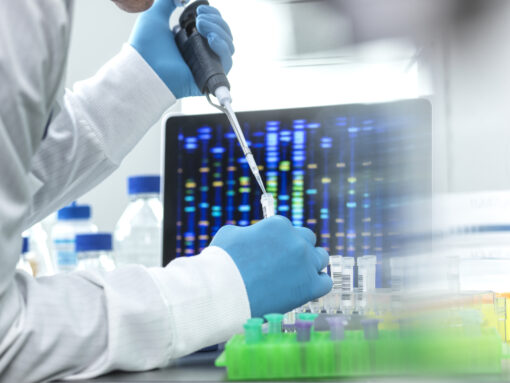DNA testing has undoubtedly revolutionized the way criminal cases are investigated and prosecuted. This powerful tool can exonerate the innocent and implicate the guilty through matching DNA found at crime scenes with blood, hair, and saliva samples. However, the common belief that DNA testing is 100% accurate in all situations is a misconception.
In this blog, we will explore the complexities of DNA testing, its limitations, and the potential for human error that may impact the results. If you are facing criminal charges based on DNA evidence, it does not mean you are without options. Contact Chambers Law Firm at 714-760-4088 for a free legal consultation to explore your legal avenues.
Understanding DNA and Its Use in Criminal Investigations
Humans share 99.9% of their DNA with one another, but it’s the unique 0.1% that sets us apart. By analyzing specific genetic markers, scientists can isolate the differences that make each person’s DNA distinct. In a criminal investigation, DNA samples collected from a crime scene can be tested against a suspect’s DNA or searched in publicly available DNA records to find matches.
The Possibility of Failure in DNA Testing
Though DNA testing is highly accurate when performed correctly, it is not immune to failure. The only authentic way two individuals could possess identical DNA is if they were identical twins. Yet the accuracy of the DNA process itself does not guarantee the accuracy of the testing. Several issues could lead to incorrect results, including:
Badly Collected Samples
If a DNA sample contains genetic information from more than two individuals, it may produce a flawed profile. Many DNA samples are collected from locations with genetic material from multiple people, such as door handles, leading to potentially erroneous results. This aspect can be challenged in court, especially if it leads to the arrest and prosecution of innocent individuals.
Inadequate Laboratory Procedures
In busy jurisdictions, crime labs may process thousands of samples simultaneously. While stringent procedures exist to prevent mix-ups, human error can still occur, causing potential confusion and incorrect conclusions.
The Human Element in DNA Testing
While DNA evidence is highly reliable if handled and analyzed properly, the human element introduces the possibility of mistakes. From collection to analysis, the involvement of people in the process leaves room for error.
What to Do If You Are Accused Based on DNA Evidence
If you find yourself arrested for a crime and DNA evidence is the primary evidence against you, it’s vital to consult a skilled criminal defense attorney. They may work to disqualify the evidence or challenge its validity.
At Chambers Law Firm, we understand the intricacies of DNA testing and are prepared to defend your rights. Contact us at 714-760-4088 for a free legal consultation. Remember, DNA testing is a powerful tool, but it’s not always perfect, and you still have legal options.





